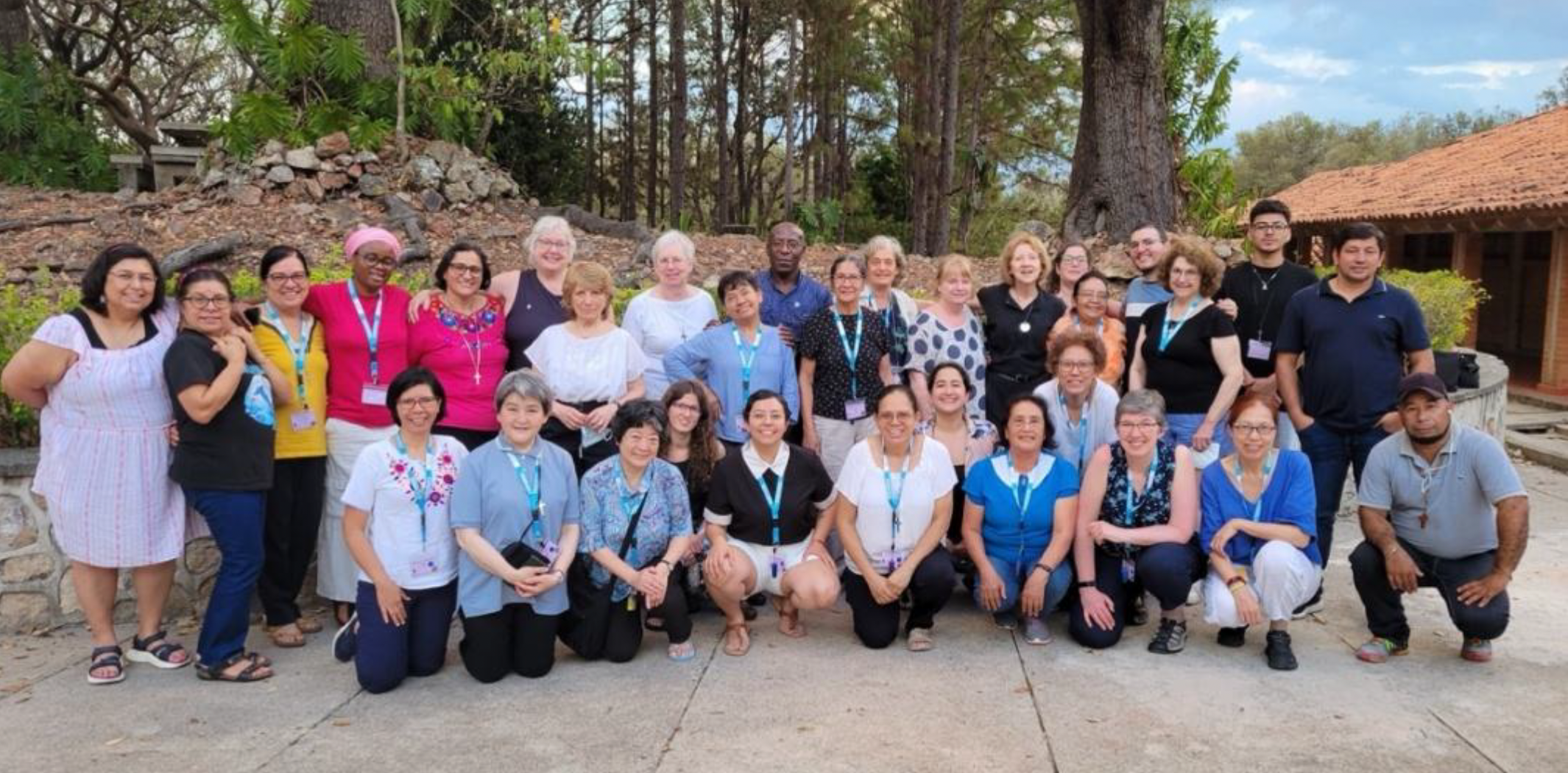Social Justice Network in Honduras, May 2025
The Social Justice Network met in Tegucigalpa, Honduras, from May 10 – 18, 2025. The theme of this year’s meeting was “Migration, Weaving Accompaniment on the Periphery.” All provinces and regions were
represented at the meeting with Sister Karen Kelly and Associate Teresa McKerral representing Visitation Province.
After being warmly welcomed by our sisters and associates from the region, our meeting began with each province and region giving presentations highlighting the justice work being done in their area.
Following these presentations, Father Ismael Moreno, sj, who presented at the International Forum last summer and Karla Rivas, a journalist and activist from Honduras who works with the Jesuit Network for Migrants in Central America, led us through an analysis of the current migrant crisis in Honduras and throughout the world. They noted the difficult conditions that compel people from Central America to flee their homeland, the dangers that migrants from many countries face as they struggle to enter the United States through Mexico as well as the hazardous conditions and dangers they face as they travel through numerous countries to get to the border.
Father Moreno facilitated a second session with us on “Theological illumination of accompaniment at the periphery,” where he linked the gospel imperatives with what we as Christians need to be doing and what the hierarchical church is not doing.
Our week also included several excursions. Our first trip was to Danli, a city in Honduras near the Nicaraguan border. We met with a Good Shephard Sister who coordinates a team of volunteers who feed migrants travelling from Nicaragua, Panama, Columbia, Venezuela etc. through Honduras to the Mexico-USA border. This group works long hours on next to no budget in order to ensure these vulnerable people have food for their journey. They collaborate with a nearby migrant family shelter which provides essential services for migrants passing through the country. This shelter compound, which has many modular units, provides other basic necessities such as hygiene facilities, access to healthcare and migration advice.
After listening to staff presentations at both locations, we had the opportunity to speak with a number of the migrants who were resting there. They were amazingly open when speaking about all that they had experienced as they journeyed. On the day we visited, most of the migrants were from Venezuela and had travelled by foot from Venezuela to the Mexico-US border where they waited for permission to enter. After months of waiting and being denied entrance, they were now on their way back. The majority of the migrants we met were young families [eg: a young doctor, his wife and two young children, a single mother of two little boys & expecting twins, siblings with their spouses and children]. All had left their country hoping to find a safer place to raise their family. Several had decided to apply for asylum in Honduras and were waiting to hear if they would be accepted. All expressed how grateful they were to be alive and were somehow still hopeful for a better future.
A second excursion was to Guapinol, a town in northern Honduras where the local people are struggling with a mining company over the use and protection of water. Juan López, a municipal councillor and an environmental defender in Honduras, was known internationally for his work defending the Guapinol River and opposing the mining project in the Carlos Escaleras National Park. Lopez was murdered on September 14, 2024, in Tocoa, Colón. Other community members with whom he was collaborating have continued the opposition to this mining project which is destroying the river.
We were able to meet with the community group, listen to the story of their struggles and accompany them to the Guapinol River.
The last two days of our gathering focused on the development of the Social Justice Network Action Plan for the next two years. This action plan will eventually be shared with the entire Congregation.
Our off-site visits provided our group the opportunity to see a lot of the country as we traveled by bus to different locations. Both the land and the people are beautiful and warm. We returned home with grateful hearts, many memories and pictures, and a deepened commitment to justice having been stretched and challenged by all we had experienced.
